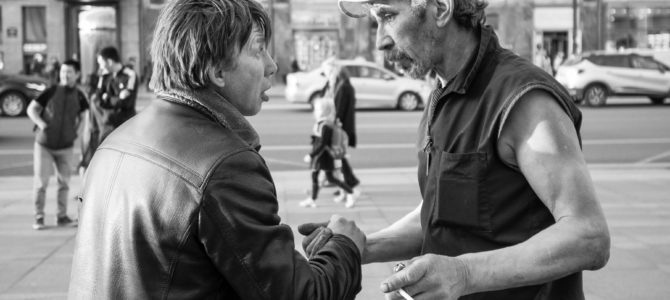
As government officials proposing “indefinite” mask mandates want to keep forcing us to wear masks forever, I’ve long feared another casualty of COVID-19 rules would be permanent: the handshake.
It’s a staple of every introduction, every Sunday morning before church starts, every interview or agreement or congratulation. It’s cliche but true that you can tell a lot about people by the way they shake your hand: a confident grip, eye contact, an accompanying smile.
But the inimitably patronizing czar of flip-flopping known as Dr. Anthony Fauci told us last year to get rid of the handshake for good, in what was evidently an overestimation of how much the American people will listen to his orders. “I don’t think we should ever shake hands ever again, to be honest with you,” Fauci told the Wall Street Journal. “As a society, just forget about shaking hands,” he said in a separate interview. “We’ve got to break that custom.”
“Some think it was always a bad greeting,” NPR reminded us in a podcast the same month. Elana Rabinowitz, a guest on the podcast, has complained the handshake is “a man’s thing” that is “reminiscent of an outdated regime and old boys’ club.” Drawing a connection to the “Me Too” movement, she added, “a forced handshake is an imposition.”
Rabinowitz passive-aggressively derided her last pre-COVID handshake — from “a polite stranger offering up his hand in the neighborhood, introducing himself to me with the words, ‘If you ever need anything, let me know'” — as “a simple act of kindness that may have infected me.”
But contrary to the complaints and instructions from people like Rabinowitz and Fauci, the handshake hasn’t been replaced with the awkward elbow-bump, or the namaste bow Emerson College professor Tulasi Srinivas suggested to NPR. Many Americans have spent the last year missing the normality of human touch, not looking for new ways to get rid of it.
Flinching away from a handshake isn’t just physical. When you treat someone like he’s too germy to touch, it’s impossible not to internalize a small sense of that defensiveness or even disgust in the way you think of him in general.
Years before anyone had heard the acronym”COVID,” scientist and professor Val Curtis suggested handshakes “signify that the other person is trusted enough to share germs with.” Exactly — it’s a communication of trust and openness, needed as much as ever in a climate that has encouraged us to isolate ourselves.
Contrary to the “experts” who encourage the handshake’s demise, studies have shown the connective power of touch. Researchers from DePauw University put two strangers in a room separated by a curtain, able to communicate only by reaching a hand underneath. Just by touching the other person’s forearm, the first person would try to convey emotions like “envy, fear, love, embarrassment, anger, gratitude, pride, [or] disgust.” After examining the results from 200 participants, a reporter who spoke with the head researcher concluded, “the accuracy rate of touch is equal to that of emotions communicated by the face or the tone of voice.”
The New York Times in 2010 referenced a study indicating a teacher’s “supportive touch on the back or arm” made students almost “twice as likely to volunteer in class.” Another found “a sympathetic touch from a doctor leaves people with the impression that the visit lasted twice as long.”
Not only is touch in general a powerful conveyor for emotion and human connection, handshakes specifically induce a bond of trust. To “shake on it” seals agreements and promises, appealing to a sense of honesty and obligation.
In the James Stewart classic “It’s A Wonderful Life,” there’s a scene where Stewart’s character begins to shake hands with his nemesis, the greedy slumlord Henry Potter. He’s about to entertain a job offer from Potter, but the act of shaking hands makes him realize who he’s joining forces with — and he pulls away with sudden clarity and conviction. There’s a reason shaking hands with someone we loathe makes us uneasy: it connects us to him and requires us to do something with that sense of association.
Tracing back through ancient Greek lore as well as Babylonian and Assyrian customs, the handshake is thought to have shown its participants were unarmed and peaceful. In Homer’s “Iliad,” when opposing warriors Glaucus and Diomedes met on the battlefield and realized Glaucus had known Diomedes’ grandfather, they exchanged armor and “clasped each other’s hands and pledged their faith” in a sign of loyalty and friendship.
After a yearlong assault on daily life as we’ve known it and an attempt to replace it with a sterile and fearful “new normal,” the handshake is one more thing we shouldn’t let go. To do away with it is just one more way to perpetuate the suspicion, detachment, and self-centeredness we’ve seen too much of this past year.









